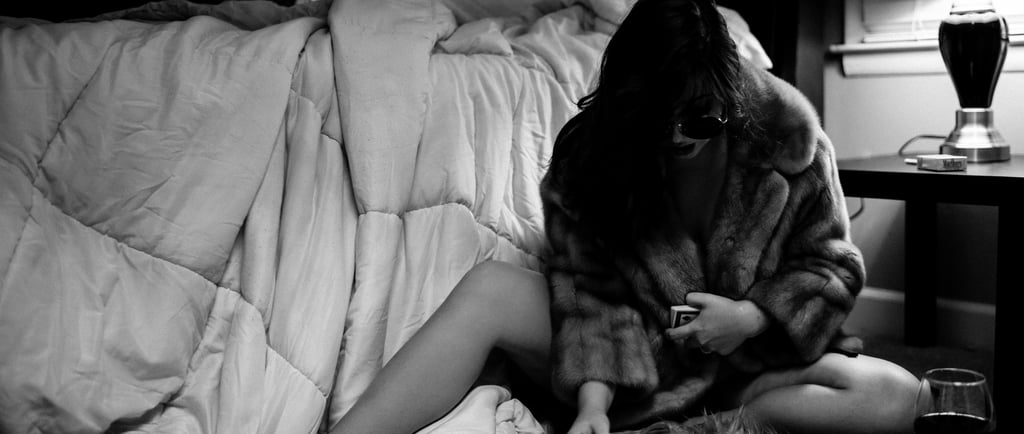Navigating the Social Hangover
After the buzz of a party or night out, many of us wake up to a heavy fog of emotional and physical exhaustion. This “social hangover” is the drained, low-energy crash that often follows big gatherings—especially for introverts. Read more >
WELLNESS
Hērnú wellness
5 min read


Big social gatherings—whether a lively party, a family reunion, or a night out—carry a unique energy. The laughter, conversations, music, and connection can feel invigorating yet overwhelming. You share stories, laugh, and maybe even dance. By the end, you’re filled with joy but often exhausted—a fatigue you embrace for the people you care about.
Yet, the aftermath can hit hard. Hours or even days later, you might feel drained, like your energy has vanished. A fog of low mood, physical tiredness, or even a scratchy throat can settle in. What was vibrant in the moment can leave you feeling depleted. This is the “social hangover”—a post-event slump where energy tanks, mood dips, and sometimes your body protests. Introverts may feel it most intensely, but extroverts aren’t immune. This guide explores what a social hangover feels like, why it happens, and practical, timeless strategies to recharge.
Understanding the Social Hangover: What It Feels Like
Imagine waking up after a lively event, expecting to bask in fond memories, but instead feeling a wave of lethargy. It’s not just physical exhaustion; it’s an emotional and mental drain. Conversations replay in your mind—not the fun moments, but the ones where you second-guess what you said or how you came across. Self-doubt creeps in, casting a temporary grey tint over your mood.
This low mood isn’t always clinical depression (though it can amplify existing conditions); it’s more like a fleeting fog. You might feel unmotivated, irritable, or disconnected from your usual joys. Everyday tasks like answering texts or making breakfast can feel daunting. Physically, you might notice subtle aches, brain fog, or even a sniffle. Is it just coincidence, or does social overload impact your body?
There’s a real connection. Social events, especially for introverts, can elevate cortisol, the stress hormone. Introverts often expend more mental effort to engage, leading to “introvert burnout.” Research in psychology suggests prolonged social interaction overstimulates the nervous system, causing fatigue and temporarily weakening immune function. Stress shifts energy from immune responses to “fight or flight” mode, making you more susceptible to feeling run down. Sensory overload—loud music, bright lights, overlapping conversations—amplifies this. You loved the event, but your social battery has limits. This experience, often called a social hangover, is common among introverts, highly sensitive people, and those with anxiety.
Why Does This Happen? The Science and Psychology Behind It
Let’s dive into the why. Personality plays a big role. Introverts recharge in solitude, while extroverts draw energy from others, as described by psychologist Carl Jung. Socializing is enjoyable but costly for introverts, depleting dopamine (the feel-good chemical) after overstimulation, leading to that drained feeling.
Emotional labour adds to the toll. Engaging in nonstop conversation demands empathy, active listening, and sometimes masking discomfort. Small talk with acquaintances is especially taxing, lacking the ease of close friendships. Juggling multiple interactions can feel like emotional whiplash, leaving you depleted.
Physically, stress impacts immunity. Research in psychoneuroimmunology shows that cortisol suppresses white blood cell activity, increasing vulnerability to minor ailments. Combine this with late nights, dehydration, or alcohol, and the effect intensifies. You might feel sniffly or achy—your body’s signal to slow down.
Cultural pressures also contribute. In societies that celebrate extroversion, we often push past our limits, leading to burnout cycles. Recognizing the social hangover as a valid response—not a flaw—empowers you to balance socializing with recovery.
Practical Steps to Recharge and Recover
Recovery from a social hangover is about intentional self-care. Below are actionable strategies across physical, emotional, mental, and holistic categories. These steps are simple, require no special tools, and can be adapted to your needs.
1. Prioritize Rest and Sleep
Rest is essential when you’re depleted. A 20–30-minute power nap can reset you without causing grogginess. If napping isn’t your thing, try the “legs up the wall” pose: lie on your back with legs elevated against a wall for 10 minutes to promote circulation and calm the nervous system.
For better sleep tonight, practice good sleep hygiene. Dim lights, avoid screens an hour before bed, and consider sipping chamomile tea. Poor sleep reduces immune function significantly, so aim for 7–9 hours to rebuild energy.
2. Hydrate and Nourish Your Body
Dehydration is common after social events, especially if alcohol was involved. Drink plenty of water—aim for half your body weight in ounces daily. Add lemon or cucumber for flavor and electrolytes.
Focus on immune-boosting foods. A smoothie with spinach, berries, yogurt, and ginger provides antioxidants to combat inflammation. Choose whole foods like nuts, avocados, or salmon (if non-vegetarian) over sugary snacks to avoid energy crashes. Probiotics from yogurt or kefir support gut health, which is linked to mood and immunity. If you’re feeling low, vitamin C-rich foods like citrus fruits can help.
3. Gentle Movement and Nature Time
Light exercise, like a 20-minute walk, releases endorphins without draining energy. Fresh air and sunlight boost vitamin D, which supports immunity and mood. If weather permits, head to a park for solitude and grounding. If indoors, try gentle yoga poses like child’s pose or cat-cow to release tension.
Avoid intense workouts when depleted; they can worsen fatigue. Nature exposure, like “forest bathing,” lowers cortisol, helping you feel refreshed.
4. Emotional and Mental Recharge Techniques
Address low mood proactively. Journaling helps process emotions—write about what drained you and what energized you during the event. This clarity prevents future burnout.
Try mindfulness or meditation. A 10-minute body scan meditation (available on apps like Headspace or Calm) releases tension. The 4-7-8 breathing technique (inhale for 4 seconds, hold for 7, exhale for 8) calms the nervous system.
Engage in solo hobbies that spark joy, like reading, painting, or listening to music. Limit social media to avoid further drain, and set boundaries by letting friends know you’re recharging.
5. Boost Immunity Specifically
If you feel under the weather, take targeted steps. Gargle salt water for a scratchy throat or use a neti pot for congestion (follow safety guidelines). Herbal teas like echinacea or elderberry may support immunity (check for medication interactions).
Laughter boosts feel-good chemicals—watch a funny video or listen to a light hearted podcast. For the adventurous, try a brief cold shower (start warm, end cold) to stimulate lymph flow and immunity.
6. Know When to Seek Help
If symptoms persist—such as prolonged low mood or worsening physical symptoms—consider professional support. A therapist can help with social anxiety, and a doctor can assess immune concerns. Don’t hesitate to schedule an appointment if needed.
Embracing Your Rhythm
The social hangover reminds us of our human limits. Socializing is wonderful, but so is solitude. By prioritizing rest, nourishment, gentle movement, and emotional care, you can recover and feel like yourself again. It’s not about changing who you are—it’s about honouring your energy.
Take care of yourself, and embrace your unique rhythm.
connect
Join us on your wellness journey.
join us
© 2026 Hērnú Wellness. All rights reserved. Designed to inspire mindful living.
Hērnú
A space for self-care, inspiration, and mindful living. Discover practices and clean products that honour your unique journey to wellness.
At Hērnú Wellness, transparency matters. Some of the links on this website are affiliate links, which means that if you click through and make a purchase, we may earn a small commission. This comes at no additional cost to you and helps support the work we do in creating content, resources, and wellness guides..
DISCLAIMER
LEGAL
EXPLORE
Hērnú Wellness offers educational wellbeing content only. It is not a substitute for professional medical or mental health care. Please consult a qualified healthcare provider for personalised advice.
